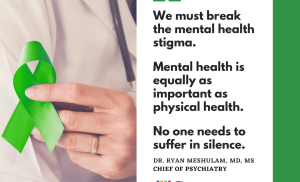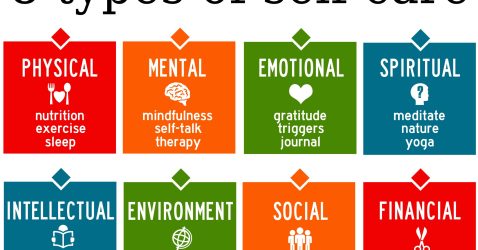Silver Linings: Thriving In Senior Years With Good Mental Health
As you enter your golden years, one thing becomes increasingly important: maintaining good mental health. The journey of aging may come with its own set of challenges, but it also presents unique opportunities for personal growth and fulfillment. In this article, we will explore the silver linings of thriving in your senior years, uncovering strategies to cultivate a positive mindset, prioritize self-care, and foster meaningful connections that contribute to a vibrant and fulfilling life. Let’s embark on this journey together and discover the keys to unlocking a fulfilling and joyful senior experience.
Introduction
Welcome to “Silver Linings: Thriving in Senior Years with Good Mental Health.” In this article, we will explore the various aspects of mental well-being in the senior years and discuss how you can maintain good mental health as you age. Aging can bring about new challenges and changes, but it is also a time of growth, possibilities, and opportunities to prioritize your mental well-being. By focusing on physical health, social connections, cognitive stimulation, emotional well-being, positive aging perspectives, managing chronic conditions, and accessing mental health resources, you can navigate the senior years with resilience and flourish in every aspect of your life.
Physical Health and Mental Health
The Link Between Physical and Mental Health
You may be surprised to learn that physical and mental health are closely intertwined. When you take care of your body, it positively impacts your mental well-being. Regular exercise, a balanced diet, and adequate sleep play key roles in promoting good mental health. By prioritizing physical health through these lifestyle choices, you can boost your mood, reduce symptoms of anxiety and depression, and enhance your overall mental well-being.
Benefits of Exercise for Mental Health
Encouragingly, engaging in regular exercise can have profound positive effects on your mental health. Exercise stimulates the release of feel-good chemicals in the brain, such as endorphins, which help improve your mood and reduce stress and anxiety. Whether it’s going for a walk, practicing yoga, swimming, or engaging in any physical activity that you enjoy, exercise can be a powerful tool for promoting mental well-being in your senior years.
Importance of a Balanced Diet
Maintaining a balanced diet is another crucial aspect of supporting your mental health. Eating nutrient-rich foods, such as fruits, vegetables, whole grains, and lean proteins, provides your body and brain with the necessary fuel to function optimally. A healthy diet can help regulate mood, improve cognitive function, and reduce the risk of developing mental health conditions. Remember to stay hydrated and consult with a healthcare professional or nutritionist for personalized dietary recommendations.
Effects of Sleep on Mental Well-being
A restful night’s sleep is essential for your mental well-being. During sleep, your brain processes emotions, consolidates memories, and resets for the next day. Lack of quality sleep can lead to mood swings, difficulty concentrating, and increased stress levels. Establishing a regular sleep schedule, creating a relaxing bedtime routine, and ensuring a comfortable sleep environment can greatly improve your sleep quality, which in turn supports your mental health and overall well-being.
Social Connections and Mental Health
Importance of Social Connections
Maintaining social connections is vital for your mental health, no matter what age you are. As you age, it becomes even more crucial to cultivate and nurture meaningful relationships with family, friends, and your community. Social connections provide emotional support, a sense of belonging, and opportunities for engagement and fulfillment. By fostering social connections, you can combat loneliness and isolation, reduce the risk of developing mental health issues, and enhance your overall well-being.
Building and Maintaining Relationships
Building and maintaining relationships in your senior years may require some effort, but the rewards are well worth it. Make an effort to reach out to old friends, join social clubs or hobby groups, and participate in community events. Volunteering and engaging in activities that align with your interests can also help you meet new people and forge new connections. Remember, it’s never too late to make new friends and strengthen existing relationships.
Joining Community Groups and Activities
Joining community groups and participating in activities can have a significant positive impact on your mental health. Whether it’s a book club, a gardening society, a local charity, or a fitness class, these groups provide opportunities to connect with like-minded individuals, develop new skills, and find a sense of purpose. Additionally, community groups and activities can offer a support network, fostering a sense of belonging and promoting mental well-being in your senior years.
Challenges and Stressors in Senior Years
Common Challenges Faced by Seniors
While the senior years can be fulfilling, they also present unique challenges that can impact mental health. Common challenges faced by seniors include physical health issues, loss of loved ones, reduced independence, financial concerns, and adjusting to changes in roles and routines. Recognizing and addressing these challenges is essential for maintaining good mental health and navigating the senior years with resilience.
Managing Stress and Anxiety
Stress and anxiety can affect individuals of all ages, but they can be particularly prevalent in the senior years. Learning effective stress management techniques, such as deep breathing exercises, meditation, journaling, or engaging in enjoyable activities, can help alleviate stress and anxiety. Seeking professional help, such as therapy or counseling, can also provide valuable support in managing these challenges. Remember, it’s important to prioritize self-care and seek assistance when needed.
Cognitive Stimulation and Mental Health
Keeping the Mind Active
Keeping your mind active is crucial for maintaining good mental health as you age. Engaging in activities that challenge your brain and stimulate cognitive function can help prevent cognitive decline and reduce the risk of developing conditions like dementia. Reading, solving puzzles, playing brain games, or learning a new language are excellent ways to keep your mind sharp and active.
Engaging in Brain-Boosting Activities
In addition to keeping your mind active, engaging in activities specifically designed to boost your brain health can have significant mental health benefits. These activities include practicing mindfulness, engaging in creative pursuits such as painting or playing a musical instrument, and trying out memory exercises. By incorporating brain-boosting activities into your daily routine, you can enhance your cognitive abilities and promote overall mental well-being.
Learning New Skills or Hobbies
Learning new skills or hobbies is not only a wonderful way to keep your mind active but also an opportunity for personal growth and fulfillment. Whether it’s taking up a new language, trying your hand at painting, gardening, or learning to play an instrument, exploring new interests can bring excitement and purpose into your life. Learning new skills or hobbies fosters a sense of accomplishment, boosts self-esteem, and contributes to your mental well-being.
Emotional Well-being and Mental Health
Understanding and Expressing Emotions
Understanding and expressing your emotions plays a vital role in maintaining good mental health. As you age, it’s important to acknowledge and address your feelings, both positive and negative. Give yourself permission to experience a range of emotions and find healthy ways to express them, such as through journaling, talking to a trusted friend or family member, or engaging in activities that bring you joy. Emotional well-being is a crucial component of your overall mental health.
Coping with Loss and Grief
Loss and grief are natural experiences that can arise in the senior years. Whether it’s the loss of a loved one, a decline in physical abilities, or changes in independence, it’s important to allow yourself to grieve and seek support during these times. Connecting with others who have experienced similar losses, joining support groups, or seeking professional help can provide solace, understanding, and guidance in navigating the complex emotions associated with loss and grief.
Practicing Gratitude and Positivity
Practicing gratitude and maintaining a positive outlook can significantly impact your mental well-being in the senior years. Cultivating an attitude of gratitude by taking time to reflect on the things you are thankful for can enhance your overall happiness and resilience. Additionally, focusing on positive aspects of your life, practicing optimism, and engaging in positive self-talk can contribute to improved emotional well-being and mental health.
Positive Aging: Changing Perspectives
Shifting From Ageism to Positive Aging
Society often perpetuates ageist stereotypes, but it’s essential to shift our perspectives and embrace positive aging. Embracing your senior years as a time of growth, wisdom, and possibilities can have a transformative effect on your mental health. Instead of focusing on limitations, focus on your strengths and the opportunities that come with age. Embracing positive aging empowers you to live life to the fullest, nurture your mental well-being, and challenge societal expectations.
Reframing Aging as a Time of Growth and Possibilities
Reframing aging as a time of growth and possibilities allows you to approach your senior years with optimism and purpose. Take advantage of the newfound time and freedom to pursue activities that bring you joy and fulfillment. Consider setting new goals, exploring new interests, or even embarking on a new career path. By reframing aging as an opportunity for personal growth and exploration, you can cultivate a positive mindset and ensure a fulfilling and mentally healthy senior phase of life.
Managing Chronic Conditions and Mental Health
The Impact of Chronic Health Conditions on Mental Well-being
Managing chronic health conditions is a significant aspect of maintaining good mental health in your senior years. Chronic conditions can impact your mood, daily activities, and overall quality of life. It’s important to prioritize self-care, adhere to treatment plans, and communicate with your healthcare provider about any concerns or challenges you may face. Ensuring that your physical health is properly managed plays a key role in supporting your mental well-being.
Developing Coping Strategies
Developing effective coping strategies is essential when managing chronic conditions and their potential impact on mental health. Seek support from healthcare professionals, attend support groups, or participate in counseling sessions to learn valuable strategies for managing stress, anxiety, and other emotional challenges that may arise. Engaging in self-care practices, such as relaxation techniques, maintaining a healthy lifestyle, and engaging in activities that bring you joy, can also contribute to your overall mental well-being.
Accessing Mental Health Resources
Senior-Friendly Mental Health Services
Accessing senior-friendly mental health services is vital for obtaining the support you may need. Many professionals specialize in working with older adults and understand the unique challenges and needs of this population. Reach out to your healthcare provider or local community organizations to inquire about mental health services tailored to seniors. These services may include therapy, counseling, or support groups specifically designed to address the mental health needs of older adults.
Support Groups and Counseling Services
Support groups and counseling services can offer invaluable support when it comes to maintaining good mental health in your senior years. Support groups provide a safe space to connect with others who are facing similar challenges, share experiences, and gain insights and advice. Counseling services offer professional guidance and support, providing you with tools and coping strategies to navigate your mental health journey effectively. Don’t hesitate to seek out these resources to ensure optimal mental well-being.
Utilizing Technology for Mental Health Support
In today’s digital age, technology offers numerous resources and platforms for mental health support. From telehealth services that allow you to connect with therapists online to mental health apps that provide exercises, tracking tools, and educational resources, technology can be a convenient and effective way to access mental health support. Familiarize yourself with available platforms, and don’t be afraid to explore these options as additional tools to support your mental well-being.
Conclusion
Congratulations on reaching the end of “Silver Linings: Thriving in Senior Years with Good Mental Health.” We have covered various aspects of mental well-being in the senior years, highlighting the importance of physical health, social connections, cognitive stimulation, emotional well-being, positive aging perspectives, managing chronic conditions, and accessing mental health resources. By implementing these strategies, embracing a positive mindset, and seeking support when needed, you can navigate the senior years with resilience, improve your overall mental health, and live a fulfilling and meaningful life. Remember, your mental well-being matters at every stage of life, and there is a silver lining waiting for you in every moment.
















